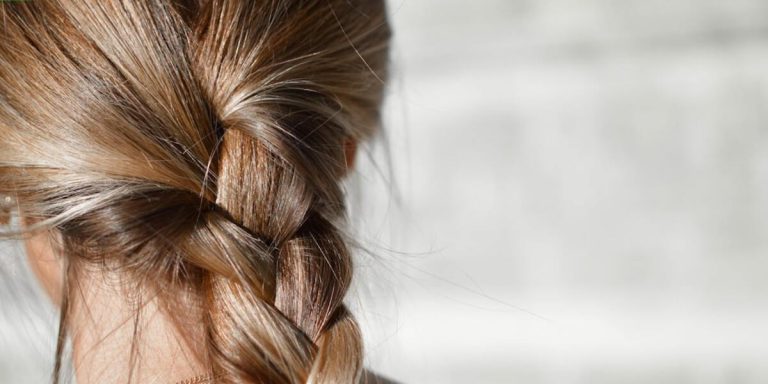Can Greasy Hair Cause Hair Loss? Exploring the Link Between Scalp Health and Baldness
Most of us have had the disconcerting experience of finding hair strands on our pillow, brush or shower drain. This is usually nothing to worry about; losing up to 100 hairs a day is normal. But an increase in this number can cause alarm and raise questions like “can greasy hair cause hair loss?” Understanding the factors contributing to hair fall becomes vital for those who are keen on maintaining their lush locks.
Understanding how scalp health may contribute towards baldness opens a new avenue of exploration given its significance beyond cosmetic concerns. Hair loss could be an indication that your scalp needs attention, especially if you’re dealing with consistently greasy roots. The connection between oily scalps and thinning manes isn’t as straightforward as many people think—herein we will delve into what science says about it.
Did you know?
Contrary to popular belief, greasy hair itself doesn’t directly cause hair loss. However, the buildup of oil can lead to seborrheic dermatitis— a scalp condition that may result in thinning hair or even baldness over time if left untreated.
Understanding the Link Between Greasy Hair and Increased Hair Shedding
Understanding the correlation between greasy hair and hair loss can seem complex, but it’s a topic that merits attention. Greasy or oily hair results from excess production of sebum by the scalp’s oil glands. While this natural oil is vital for healthy locks, its overproduction may lead to issues like limp strands, increased dandruff presence and yes – even potential for increased shedding.
Let’s uncover more about how exactly this works. The excessive sebaceous secretions envelop your tresses in a layer of grease creating optimum conditions for bacterial growth. This not only triggers inflammation but also clogs up the pores on your scalp which could obstruct normal follicle growth cycle leading to noticeable thinning.
However, while already having greased-laden locks might be distressing enough without adding concerns about losing them altogether; it must be stressed that this doesn’t mean every person with an oily mane will notice bald patches soon! Yet controlling these high levels of oils as part of your ‘haircare’ can indeed help reduce unwanted fallouts.
Examining Sebum Production and Scalp Health
Sebum production and scalp health are two important factors for healthy hair. They interact in a delicate balance that can be disrupted, leading to greasy hair and potential increased shedding, making you wonder – Can greasy hair cause hair loss?
Excessive sebum on the scalp might cause several issues related to your precious tresses. It starts with grease accumulation originating from an overactive sebaceous gland which creates excessive oiliness or Seborrhea. This excess of oils may clog up follicles resulting in inflammation, discomfort and eventually – Hair fall!
In case you’re unfamiliar with it – These tiny glands called ‘sebaceous’ sit adjacent our every single root covertly functioning like secret service agents protecting the fort! Their primary role is moisturizing the roots preventing them from drying & breaking off easily while adding a glossy shine.
However there’s also beyond just too much ‘shine’. If these glands go into hyperdrive mode they start producing more than required causing ample amount of oily substance- creating fertile conditions for microbes such as yeast Pityrosporum Ovale whose byproducts irritate skin cells around.
What happens next? Inflammation commences giving rise dandruff symptoms including itching flakiness stinging sensation thus begins saga endless scratching further aggravating scenario increasing breakage hence accelerating cycle escalation so tell us now does sound familiar?
Investigating the Role of Clogged Pores in Hair Loss
The connection between greasy hair and increased hair shedding is not as straight-forward as it might seem. It’s important to clarify that having naturally oily scalp isn’t a direct cause of hair loss itself. But, if not addressed properly, certain conditions related to greasy hair could potentially lead one down the path towards thinning strands.
we find an intriguing link worth exploring further.
Greasy or oily scalp environment often serves as breeding grounds for bacteria and fungus which love moist environments.These microorganisms increase inflammation on your scalp leading up irritated skin and poor follicle health—both factors influencing excessive shedding indirectly.
Moreover, sebum—the natural oil our scalp produces—is healthy until over-produced.This when combines excessively with dead skin cells or dust particles , congests the scalps’ surface forming what are known commonly ‘clogs’.These unfortunately inhibit proper nutrient absorption by our roots ,and weaken their hold inside . So while its not a primary reason like hormonal imbalances , genetics etc., but surely plays its part indirectly hence becoming noteworthy-enough topic for us .
Common Misconceptions About Oily Scalps and Hair Thinning
It’s a prevalent belief that greasy or oily hair can lead to thinning and ultimately, hair loss. However, in reality, oil production is an entirely natural process of the scalp designed to keep your strands healthy and protective against damage. It’s essential not just for maintaining lustrous locks but also creating a conducive environment for robust follicle growth.
Let’s take this astronomically misunderstood concept apart before we connect any dots between oil and hair loss. The sebaceous glands present on our scalp produce sebum – the technical term for what we commonly refer to as ‘scalp oils.’ This substance helps preserve moisture within our scalps, enhancing their overall health by providing necessary lubrication.
Excessive oil does not directly contribute to accelerating hair loss. There is no scientific evidence linking greasiness with increased rates of hair fall or thinning, despite common misconceptions online. Instead, excess oil is often a symptom that signals underlying issues like dietary imbalances causing overactive glands or adverse effects from unchecked stress levels.
Debunking Myths: Is Greasy Hair a Direct Cause of Baldness?
Many people commonly believe that an oily scalp can lead to hair thinning and eventual baldness. This notion has been propagated due to the misconception that excessive sebum or oil on the scalp clogs hair follicles, preventing new hair growth. But is this really fact?
Can greasy hair cause hair loss?
Contrary to popular belief, having an oily or greasy scalp is not a direct cause of baldness. Sebum naturally produced by your body actually plays vital roles in maintaining healthy skin and protecting your hairs’ natural shine. The myth likely arouse from individuals with a genetic propensity for both increased oil production and patterned baldness – two conditions which coincide but do not necessarily have causal relation.
To better understand why grease doesn’t cause baldness, it’s important to identify the true causes of such issues:
1) Genetic predisposition: Hair loss mostly stems from hereditary genetics.
2) Hormonal changes: These often come into play during pregnancy or menopause causing temporary alopecia.
3) Medical Conditions/stress : Underlying health concerns like thyroid disorders; stress-related complications are also leading contributors towards significant reduction in overall density.
Clarifying How Overactive Oil Glands May Indirectly Affect Follicle Strength
Excess oil, or sebum, on the scalp is a concern for many. Not only does it make hair look greasy and unwashed but there’s a common belief that it could also lead to thinning of hair. You may be wondering if this belief holds any weight.
Can greasy hair cause hair loss? It’s essential to understand how our scalp works before we jump into conclusions.
Our scalps house countless small glands known as sebaceous glands which are responsible for producing an oily substance called sebum. This natural production of oils keeps your scalp moisturized and helps in maintaining healthy strands by protecting them from external damage like heat styling or environmental pollutants.
But here lies the twist: while greasiness alone won’t cause baldness outrightly, it surely creates an undesirable environment that indirectly might contribute towards weak follicles causing potential thinning eventually making way for premature shedding phase- Anagen Effluvium.
Holistic Approaches to Managing Oily Scalp for Healthier Hair Growth
Indulging in holistic practices can be an optimal solution to managing an oily scalp and bolstering healthier hair growth, particularly since maintaining the right balance of natural oils is paramount. An overly greasy or oily scalp might exacerbate existing hair loss issues as it paves a pathway for inflammation, clogs pores precluding healthy follicle development, and even invites fungal infections.
Research in 2023 supports the idea that excessive oiliness may speed up hair loss if you don’t manage it. Personalized solutions are becoming popular to address this issue. You can:
- Adopt nutrient-rich diets with essential vitamins, such as Vitamin A, to regulate sebum production and tackle the issue at its source.
- Use gentle but effective cleansing agents that target overactive sebaceous glands and minimize product buildup.
These strategies show great potential for managing hair health.
“Grease causing thinning hair”
Glandular disorders and neglecting essential daily hygiene can severely exacerbate the problem. Instead of choosing chemically laden products that claim to deliver overnight results, opt for gentler alternatives. These harsh products often remove necessary moisture, triggering your scalp to overproduce grease and further damage your hair.
Balancing Scalp Hygiene Without Exacerbating Oiliness
Excessive oil on your scalp can be a nightmare. It not only makes your hair look greasy but also paves the way for many hair problems, with one of them being hair loss.
Sebum or oil from our skin’s sebaceous glands coats the root of every strand protecting each follicle. However, excessive secretion can lead to an imbalance leading to clogged pores which inhibits healthy new growth ultimately causing thinning or even balding.
So how do we balance hygiene without increasing this pesky problem?
Dive into holistic approaches that manage excess grease and promote healthier locks.
1. **Gentle Cleansing**: Using harsh shampoos daily might seem like the solution for getting rid of all oils from your head but could worsen matters by stimulating more production of Sebum as response thus triggering increased rate in aging process.
Nutritional Adjustments that Can Regulate Sebaceous Gland Activity
As we delve into the world of greasy hair and its impact on hair loss, it’s essential to scrutinize one crucial aspect – our diet. Nutrition plays an instrumental role in regulating sebaceous gland activity, which consequently affects the oiliness of your scalp. By tweaking what goes inside your body, you can significantly address whether “can greasy hair cause hair loss” becomes a concern for you.
1. Hydrate: It may sound simplistic but staying well-hydrated is the foundation stone towards reducing overactive sebaceous glands resulting in less grease on your scalp.
2. Cut Down Dairy Consumption: Studies have established links between dairy consumption and increased male hormone secretion leading to more active sebaceous glands which contribute to both acne and greasier roots- two common conditions many people with excessive dairy intake suffer from.
3. Less Sugar Intake: High sugar food items spike insulin levels promoting multiplied release of other hormones potentially making those follicle-stressing oil factories go bonkers! So think twice before reaching out for another cookie!
4.Controlled Fat Intake: While healthy fats are good oils helping maintain overall health including skin vitality, too much fat causes higher testosterone production stimulating more sebum generation thereby likely prompting how often asks ‘Can greasy hair cause my thinning mane?’ question again.
Conclusion
In conclusion, while an excessively oily scalp can certainly lead to uncomfortable conditions like dandruff and scalp irritation, it’s not directly responsible for hair loss. The core culprits behind the troubling issue of baldness are often genetics, hormonal imbalances or certain medical conditions. Hence answering our main question: Can greasy hair cause hair loss?
Not really unless it leads to conditions that trigger damage to your follicles.
But hey – don’t just take our word for it! Explore more articles on this platform about different ‘Hair Loss Causes’. Be sure you keep browsing around and feed your inquisitiveness comprehensively by discovering other potentially surprising triggers of hair fall that could be creeping up unsuspected in your daily routine!







